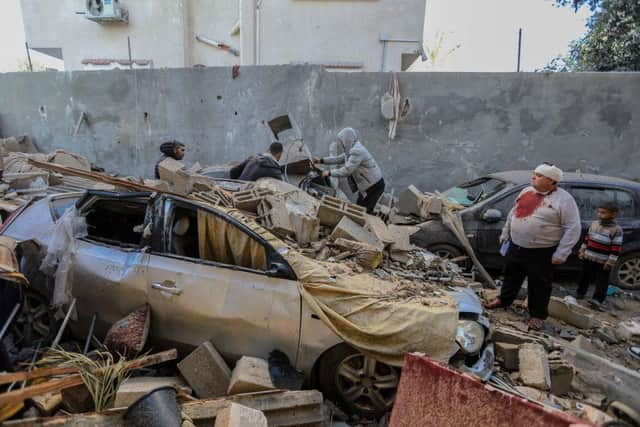Israel-Gaza: What is the ceasefire proposal in Gaza, put forward by the US, Israel, Qatar and Egypt? What does the counter proposal from Hamas say?
A plan put forward by Hamas that would see it remain in power in Gaza after the end of the war is to be considered by Israel.
United States secretary of state Antony Blinken is to meet Israeli officials on Wednesday – after Hamas issued a detailed response to its own ceasefire proposals.
Advertisement
Hide AdAdvertisement
Hide AdThe militants have reportedly laid out a three-phase plan to unfold over four-and-a-half months, responding to the proposals drawn up by the US, Israel, Qatar and Egypt.


All hostages would be released in exchange for hundreds of Palestinians imprisoned by Israel, including senior militants, and signal an end to the war. However, it would also effectively leave Hamas in power in Gaza and allow it to rebuild its military capabilities, which goes against Israel’s expectations of what is has dubbed “life after Hamas”.
The Israeli side of the proposals was believed to have included a six-week ceasefire, although the details have not been published.
US president Joe Biden has described the proposals as "a little over the top", suggesting they may not be welcomed in full by Israel. At a news conference in Doha, Sheikh Mohammed bin Abdulrahman bin Jassim al-Thani, Qatar’s prime minister and foreign minister, said that negotiators had received a response from Hamas.
“The reply includes some comments, but in general it is positive,” he said. He refused to give further details, but said the counter-offer had been delivered to Israeli officials.
“We are optimistic,” he added.
Israeli Prime Minister Benjamin Netanyahu said the war would continue until “total victory” over Hamas and the return of all the remaining hostages. He has remained opposed to the notion of a two-state solution.
Mr Blinken, who is on his fifth visit to the region since the war broke out, will be trying to advance the ceasefire talks while pushing for a larger post-war settlement in which Saudi Arabia would normalise relations with Israel in return for a “clear, credible, time-bound path to the establishment of a Palestinian state”.
Both the US and the UK governments have recently spoken about the possibility of formally recognising Palestine as a state.
Advertisement
Hide AdAdvertisement
Hide AdMeanwhile, the conflict is continuing, with humanitarian agencies warning of a critical situation in Gaza. This has been compounded by the withdrawal of some international funding from the UN’s own aid agency, UNWRA, over claims some of its staff were involved in attacks on Israeli soil.
Israel has suggested it may send ground troops into the city of Rafah, near the border with Eqypt, to track down remaining Hamas militants, sparking warnings from the United Nations that such a move could lead to a “large scale” loss of life. The city has become home to more than half of Gaza’s 2.3 million residents since the conflict began, most living in tents and temporary structures.
It is believed 32 of the remaining hostages held by Hamas in Gaza after being taken from Israel on October 7 have been confirmed to have died, with another 20 having potentially lost their lives, according to the Israeli Defence Force. More than 100 people were released by Hamas during the last ceasefire period in November, with 130 still unaccounted for.
Comments
Want to join the conversation? Please or to comment on this article.
